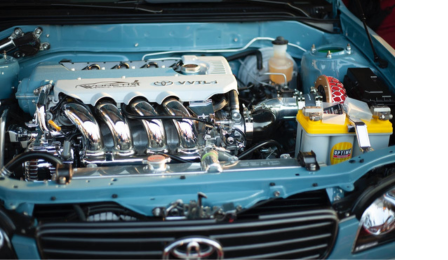Top Tips for Inspecting Used Engines for Sale Before Buying
Top Tips for Inspecting Used Engines for Sale Before Buying
Blog Article
Crucial Factors To Consider for Guaranteeing High Quality and Durability in operation Engines
When considering the purchase of an utilized engine, ensuring its quality and long life needs a multifaceted method. Upkeep history is a crucial factor, as it supplies understanding into the engine's previous care and possible future integrity. Past documents, a thorough evaluation of physical parts-- such as belts, pipes, and seals-- can reveal surprise problems. Performance testing is additionally essential, supplying a picture of the engine's functional effectiveness. Comprehending the nuances of these assessments and their effects can be complicated. What are the crucial strategies that can be utilized to navigate this intricate evaluation process successfully?
Engine Background Assessment
In the world of used engines, a thorough engine background examination is extremely important to ensuring high quality and dependability. Comprehending an engine's past can supply vital insights right into its performance capacities and possible future durability. A thorough background review encompasses several key elements that play a considerable function in examining an engine's problem. Upkeep documents are important. Regular upkeep, consisting of oil adjustments, filter substitutes, and arranged tune-ups, suggest that the engine has been well-cared-for, reducing the likelihood of unforeseen failings.
Engines that have undergone significant repair work may have underlying problems that could resurface. Examining the engine's mileage can offer as a sign of wear and tear. An engine made use of largely for long-distance freeway driving may be in far better problem than one subjected to frequent stop-and-go city web traffic.
Essentially, an exhaustive examination right into an engine's background is vital for making informed buying choices. used engines for sale.
Comprehensive Assessment Guide
While comprehending an engine's history offers beneficial context, an extensive inspection is the next step to ensure its existing problem aligns with historical information. The examination must start with a visual evaluation, looking for indicators of leaks, corrosion, and unusual wear. Evaluate the exterior for oil stains or coolant marks, which may indicate underlying problems.
Following, review the engine's installing system for any loose bolts or irregularities that might impact efficiency. Pay attention to the problem of belts and hoses, as these parts are crucial for optimum engine functionality. Examine for splits, fraying, or any indications of degeneration.

Determining Deterioration
Recognizing indications of deterioration is vital for assessing a made use of engine's durability and dependability. It includes a precise assessment of different engine parts to determine their existing state and possible future efficiency. Typical indicators include visible deterioration, which can affect metal components and jeopardize architectural stability. Corrosion on or around the engine block, cylinder heads, and exhaust manifolds is specifically concerning.
Another vital facet is inspecting the engine's seals and gaskets. Additionally, uncommon sounds during engine procedure, such as knocking or ticking audios, might suggest inner damages or too much wear on moving components like pistons or bearings.
The problem of belts and hoses is similarly vital, as they play a vital function in the engine's total function. Broken or frayed belts and breakable tubes are More hints signs old that can result in engine failing if neglected. Checking out the oil problem and filter can provide insights right into previous maintenance practices, as filthy oil or stopped up filters recommend overlook and sped up wear.
Performance Testing Fundamentals
Evaluating the wear and tear of engine parts sets the phase for an extensive analysis via efficiency testing. Efficiency testing offers as an essential measure in establishing the functional honesty of a used engine.
Utilizing dynamometers is a typical method in performance testing. These gadgets gauge the engine's outcome throughout numerous problems, providing a thorough account of its performance. In addition, on-road screening matches dynamometer evaluations by observing engine actions under typical driving circumstances, ensuring it fulfills the called for criteria for both safety and security and efficiency.
These tools examine engine management systems, identifying faults in digital elements that might impact performance. Comprehensive screening not just validates the engine's functional standing but also help in projecting future upkeep needs.
Maintenance and Care Tips
Proper upkeep and treatment are important to prolonging the life-span of a used engine and guaranteeing its consistent performance. Normal oil changes are paramount; using the supplier's recommended oil type and grade can avoid too much deterioration. Furthermore, oil filters must be replaced simultaneously to preserve optimal lubrication and cleanliness within the engine.
Keeping an eye on liquid levels, including coolant, transmission fluid, and brake fluid, is necessary. Making sure these liquids go to proper degrees assists protect against getting too hot and various other mechanical concerns. Evaluating belts and hoses for indicators of wear, such as cracks or fraying, can avert prospective failures that might lead to costly fixings.
Regular examination of the air filter is also required, as a clean filter makes sure reliable airflow and combustion, consequently enhancing engine efficiency. Ignition system should be checked and changed when needed to preserve reliable fuel burning and prevent Our site engine misfires.
Finally, regular analysis checks using expert tools can determine possible concerns before they come to be significant issues. By sticking to these maintenance and treatment ideas, made use of engine owners can ensure their engines continue to be trusted, reliable, and with the ability of executing more my site than a prolonged duration.
Final Thought

Report this page